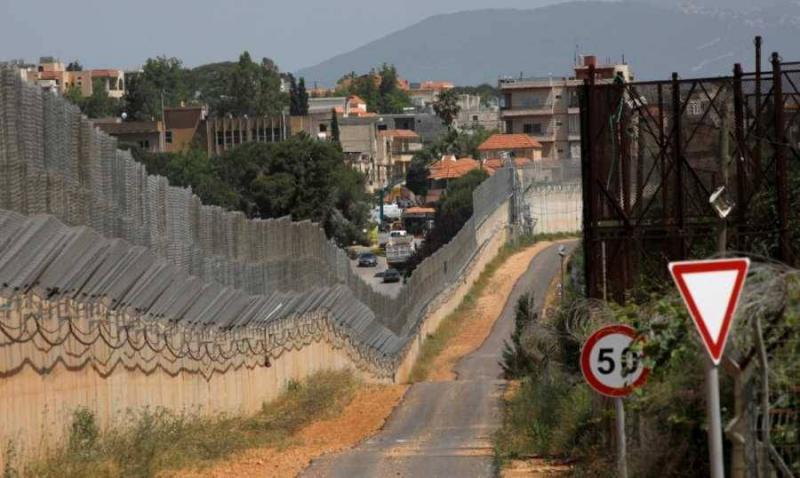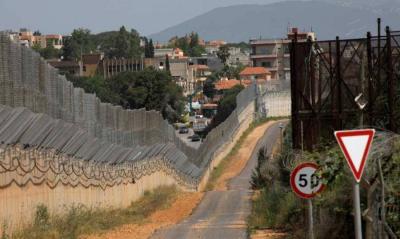It seems that the fireball has begun to roll rapidly across the region, warning of the descent of events towards a war reality out of control. The recent military developments, coinciding with the ongoing comprehensive genocide that Israel is conducting in the Gaza Strip and the intensifying clashes on the southern border between Hezbollah and the Israeli army, are starting to paint a new picture for the region, closer to a mailbox for exchanging messages, particularly missile messages—beginning with the continuous Houthi missiles in the Red Sea, followed by the air and missile strikes launched by the U.S.-led coalition on targets in Yemen, up to the Iranian missiles fired by the Revolutionary Guard at what it described as espionage sites and gatherings of terrorist groups in Syria and Iraqi Kurdistan, and lastly, but perhaps not least, the notable clashes on the Egyptian border with the Gaza Strip.
These recent developments, in their timing and qualitative scale that surfaced recently, raise fears of a widespread explosion. Lebanese responsible references expressed to international envoys that Israel, in its destructive war on Gaza and its intensive aggressions against Lebanon, deliberately targets civilians and secure southern towns, is seeking to widen the confrontation and entangle the world, particularly the United States, in a major war. They believe that this war could extricate Israel from its current quagmire in the Gaza conflict, which it admits is difficult and incurs significant daily losses on its army, having been unable after over a hundred days of war to achieve any of its objectives, whether to weaken Hamas or to regain the Israeli prisoners.
However, European diplomatic sources informed "Al-Jumhuria" that these fears are warranted given the severity of the confrontations that could keep the prospect of war alive. Yet, looking at what is happening in the back rooms of this conflict, a large-scale war is currently unlikely, as the United States and France have played a fundamental role in dampening this possibility.
The sources noted that the chances for a large-scale war were plausible in the early days of the war in Gaza, but the presumed regional and international parties to this war have realized its horrors and devastating consequences in advance, steering clear of it, and even preventing any miscalculations that could ignite a war.
Additionally, one official confirmed to "Al-Jumhuria" that the chances of a widespread war remain as long as the Israeli aggression continues against Gaza and Lebanon. Meanwhile, Lebanese diplomatic sources spoke to "Al-Jumhuria" about what they termed American seriousness in preventing the expansion of the war and revealed aspects of a meeting with a prominent European envoy not long ago, during which the envoy emphasized that matters in the region are under control within the framework of mutual fear between all parties involved in the conflict, whether directly engaged in military operations or states supporting them from behind, from slipping into a regional war that no one can gauge the magnitude of its catastrophic repercussions and the damage it would inflict not only on the interests of states in the region but also on an international level generally.
Analysts' readings tend to dismiss the hypothesis of a wide-scale war. A military affairs expert, in response to a question from "Al-Jumhuria" regarding the missile messages that traversed the skies of the region, stated that neither the United States nor Iran and its allies from Yemen to Hezbollah in Lebanon seek to expand the war. He characterized the recent so-called missile messages as a show of strength at best or described it as a debate of power cards in the game's final stages before transitioning to a cooling phase and sitting down at the negotiation table to seek solutions and understandings.
He expressed his belief that conditions have reached a ceiling that necessitates descending beneath it. The significant American efforts to achieve what the Americans refer to as containing escalation in Gaza or reducing or stopping the escalation with Lebanon must be observed. In this regard, Washington has concentrated its efforts through the successive visits of Secretary of State Antony Blinken and American mediator Amos Hochstein to Israel to achieve what is termed the third phase, which the Israeli army announced as a transition to extracting essential combat forces from Gaza, moving from broad military operations and intensive bombing to qualitative operations, reducing the intensity of fighting and war.
This is undoubtedly a regressive step, alongside the high ceiling of objectives set by Benjamin Netanyahu's government at the beginning of the war. It should not be overlooked in this context that Israel, by the admission of Israeli military and political analysts, faces a significant challenge threatening it with the outbreak of a new uprising against it in the West Bank.
In parallel to the failure of all mediations, envoy movements, and messages of allure or intimidation in halting the rolling fireball on the southern front, the ongoing military realities there raise serious fears of a descent into widespread escalation, especially since recent hours have witnessed an unprecedented intensity in Israeli offensive operations against southern regions. Reports indicated 14 consecutive airstrikes carried out by Israeli warplanes described as the heaviest since the onset of the aggression targeting the Salouqi Valley with about 20 missiles, accompanied by intense artillery fire in the area, affecting most of the southern towns adjacent to the border line.
This coincided with leaflets dropped by Israeli aircraft over the town of Kafr Kila inciting against Hezbollah. Following this, Hezbollah carried out a series of operations targeting sites at Hadb al-Bustan, Bayad Bleyda, a gathering of enemy soldiers around the Ramya site, the Samaqa site, the vicinity of settlements in Nabi Yusha, and an Israeli army gathering east of the Evn Menachem settlement.
While the Israeli army announced that a special force attacked overnight, eliminating a threat in the town of Aita al-Chab, security sources denied to "Al-Jumhuria" having knowledge of this incident, while media information indicated that three Israeli soldiers from the Israeli reconnaissance "Maglan" unit attempting to sneak from the Rahib site to the border point were discovered and returned to the Rahib site frustrated.
Al-Jazeera reported a source in UNIFIL stating that they had not received any report of Israeli infiltration across the border with Lebanon and were currently investigating the matter. It also cited a Lebanese security source stating that "we did not observe any Israeli infiltration in the vicinity of the town of Aita al-Chab in the south.”
This comes amid increasing talk in Israeli media about the Israeli army's readiness for a comprehensive confrontation scenario on the northern border with Hezbollah, and that the withdrawal of the 36th division forces from Gaza would keep them on standby for deployment on the northern front with Lebanon in preparation for the outbreak of a comprehensive confrontation.
While Israeli threats about imposing a new reality in southern Lebanon to ensure the security of Israeli settlements have continued, and discussions about Israel's desire for a diplomatic solution are constrained, the Israeli newspaper Yedioth Ahronoth reported that the northern front poses substantial pressure on the Israeli army. It pointed out that the possibility of evacuating southern Lebanon of Hezbollah forces according to Resolution 1701 through a political settlement is not far-fetched, but it is fraught with question marks and poses a threat of creating an ambiguous reality over time.
Israeli media quoted the head of the Mejdel Asher Regional Council in Western Galilee, after a meeting of Israeli government members with leaders of front-line settlements in the north, stating: "The Israeli government is not interested in the event; we have lost the north, and I am ashamed that this is the situation and this is my government's behavior."
While Israeli media have reflected the settlers' demands for military measures by the Israeli army to remove Hezbollah and ensure the security of settlements and the return of their inhabitants, simultaneous affirmations from the American side indicated the determination of the United States to reach a political solution on both sides of the border between Lebanon and Israel. The most recent affirmation came through new American ambassador Lisa Johnson, who met yesterday with President Nabih Berri and caretaker Prime Minister Najib Mikati.
Notably, the movement of the American ambassador conveyed a direct American concern for Lebanon's stability, reiterating Washington's position aimed at creating calm conditions on the border, restoring security and stability in that region. It affirmed that Washington is prioritizing achieving this goal and preventing the expansion of confrontation circles.
In response to a question about the future situation on the southern front, well-informed political sources close to the American position confirmed to "Al-Jumhuria": "The Americans confirmed that there is no broad Israeli war against Lebanon, and under this title, Washington has been operating since the beginning of the war in Gaza. Despite the escalating operations of Hezbollah, Washington does not want the confrontations on the southern border to escalate and is deterring Israel from taking any steps towards large-scale escalation. The true position of Washington was already expressed by American mediator Amos Hochstein after his meeting with President Nabih Berri last week when he stated that Israel prefers a diplomatic solution, and Lebanon also prefers it, and Washington sees that the way out of this crisis is through a diplomatic solution, and our mission is to reach a diplomatic resolution."




